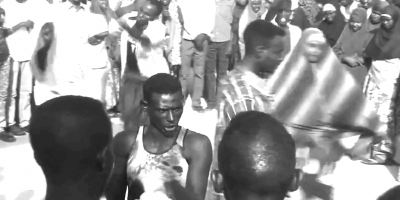
by Christopher Kerkering
Somalia’s 20-year civil war has wrought untold damage on individuals, communities, and the governing structure. Nevertheless, significant strides have been made in raising the country from failed to functioning state, based on the principles of democracy and rule of law. A new government has been established. Even more importantly, this government is guided by a Provisional Constitution – the foundation for a transformed Somalia.
But for the Provisional Constitution to realize its transformative potential, it must have advocates not just within government, but outside: people dedicated to ensuring that the principles of constitutionalism and rule of law are guaranteed to all citizens.
In all countries, Bar Associations play a unique and necessary role in developing rule of law. These bodies are experts in the legal structure of the government, the role played by different arms of government, and the limits imposed on those arms by the constitution. Yet they also have expertise in constitutional, international, and statutory law that protects human rights and guarantees fair processes for all individuals within a country. In short, they are champions of the people, the constitution, and constitutionalism.
The Somali Bar Association (SBA) too was formed to protect the rule of law and the rights of Somali citizens. But due to the civil war, it lost much of its ability to carry out its core functions; indeed, it now comprises only 60 members.
The Somali Bar Association is regrouping and gaining strength
At the height of the civil war, few lawyers were accepted to practice law, leaving a shortage of professionals between those admitted under the old socialist regime, led by Mohammed Siad Barre, and more recent university graduates. This lost generation of lawyers has meant that the older attorneys now have few people they can rely on to assume the mantle as they retire, and the young attorneys have few mentors to teach them the fundamentals of good lawyering.
This is where the SBA comes in. With the help of IDLO, its members have begun to regroup and gain strength in the practice of law, in supporting and critiquing government institutions, and in pursuing a civil society role. And in addition to mentoring the next generation, members of the SBA are finding that they must educate the different arms of government itself on their roles under the Provisional Constitution.
Over the last three years, the Provisional Constitution has created a near-total transformation in Somali governance, establishing the basic tenets of rule of law (all but destroyed during the civil war) and a democratic constitutionalism that had never existed. Even those politicians who could draw on their pre-war experiences had not amassed this kind of institutional knowledge, based on the fundamentals of democracy and separation of governmental powers. Members of the SBA, however, do have such expertise, and are intent on conveying it to both politicians and the technocrats.
The SBA is upholding the right to a fair trial
Yet the SBA cannot focus solely on establishing the fundamentals of good governance; it must also protect Somali citizens from the human rights violations that became endemic during the war. In doing so, the group faces monumental hurdles. The Advocates Act, which establishes the Bar Association and sets the criteria for admitting attorneys to practice law, is over 25 years old and rooted in the Siad Barre regime. Not only is it irrelevant to the practice of law under the Provisional Constitution, it is not even used by the current government when admitting new lawyers to practice.
Among the SBA’s main tasks has been to uphold Somali citizens’ fundamental right to a fair trial. Currently, individuals are often arrested and detained without charge, denied their right to consult a lawyer, and held for months, even years, without appearing before a judicial officer. Families only know that their relatives have disappeared; they do not know why they have been arrested or where to locate them.
A group of SBA lawyers has been working diligently to support those detained. They scour the jails to find them, represent them at no cost, and fight for their right to a fair hearing. This intervention by members of the SBA helps re-establish the rule of law and protect individuals from a law enforcement system that has been largely wiped out over the last two decades.
On my first trip to Mogadishu for IDLO, I found a city that bore the scars of civil war but retained a precious optimism. The members of the Somali Bar Association had it in abundance. They are a dedicated and intelligent group, who have successfully converted years of struggle into an inspiration and a resource. Their belief in their nation's future, faith in its people, and dedication to the principle of the rule of law strengthen my confidence that Somalia can heal its wounds and rise again.
The author is a Somalia Legal Advisor with IDLO

